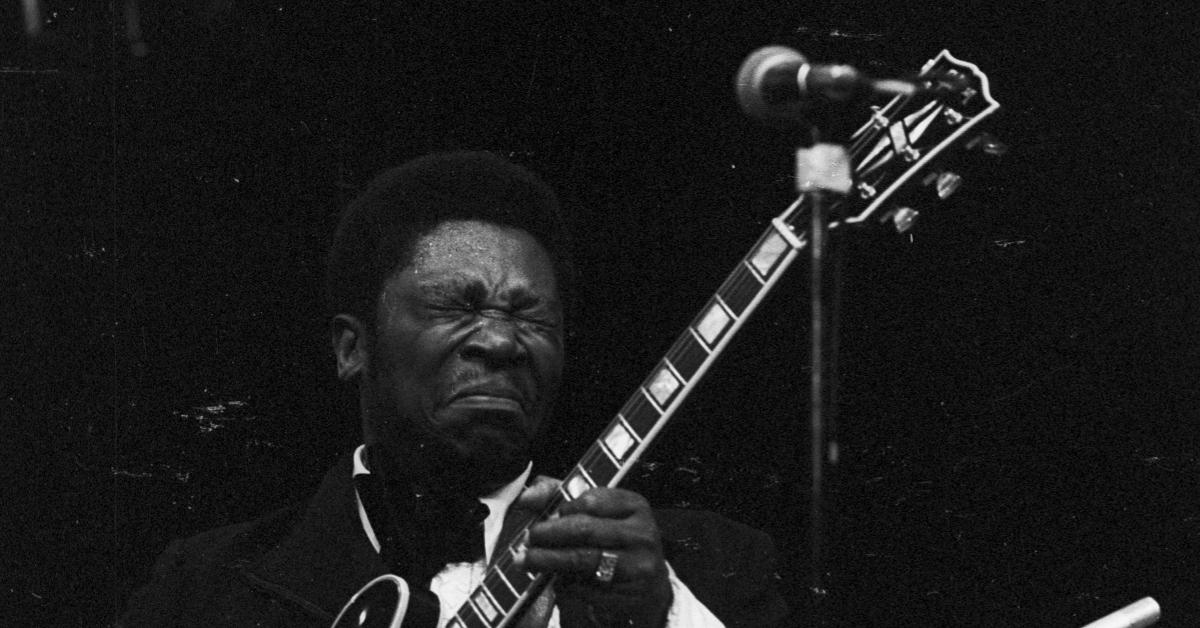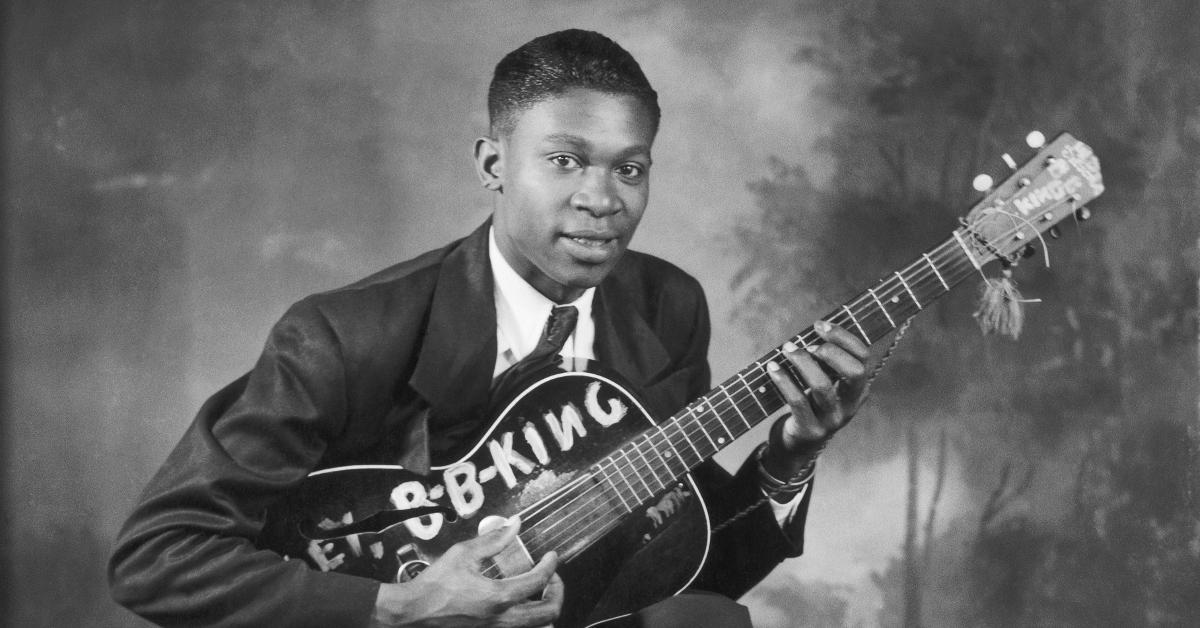Home > Entertainment

Published June 26 2022, 10:48 a.m. ET
Whenever a biopic about a public figure is released, everyone wants to separate fact and fiction about their personal lives. To be able to condense a cultural icon's entire life, especially celebrated artists like Elvis Presley, in a two hour and thirty-nine minute film that forms a cohesive narrative is going to result in some omissions and scenes/dialogue crafted to serve that narrative.
Baz Luhrmann's film about the rock and roll mega star is no different, but the movie is being praised for its accurate depiction of B.B. King and Elvis' friendship.
Article continues below advertisem*nt
Elvis and B.B. King's friendship.
B.B., whose real name was Riley, is one of the most celebrated American blues guitarists who had a profound influence on not just rock n' roll, but the music industry as a whole. AllMusic called King "the single most important electric guitarist of the last half of the 20th century."
He was a prolific live performer as well: when his career was burgeoning in 1956 he was a tour demon, playing some 342 shows in that year alone.
On average, even into his '70s, King would average some 200 performances a year. To say the "King of Blues" had humble beginnings would be an understatement: he was born on a Bena, Mississippi cotton plantation in 1925, then worked in a cotton gin in Indianola. King, like Presley and many other famous musicians were first introduced at the same place: church.
Article continues below advertisem*nt
According to Lit Hub, King said that he first met Presley at Sam Phillips Studios in the early '50s while laying down tracks or visiting as a guest. King said that he would often come into contact with other famous artists like Johnny Cash, Carl Perkins, and Jerry Lee Lewis, however, Elvis and King hit it off, according to the guitarist.
Article continues below advertisem*nt
"I saw all of them, but they didn’t have much to say. It wasn’t anything personal, but I might feel a little chill between them and me. But Elvis was different. He was friendly. I remember Elvis distinctly, because he was handsome and quiet and polite to a fault," King said of Presley.
King's first impression of Elvis wasn't one of a person who was about to become a cultural phenomenon, but just as a country crooner with a great voice.
Elvis Presley and B.B. King, 1956 pic.twitter.com/AMcgkHUfXE
— Classic Rock In Pics (@crockpics) June 23, 2022
Article continues below advertisem*nt
"Spoke with this thick molasses Southern accent and always called me ‘sir.’ I liked that. In the early days, I heard him strictly as a country singer. I liked his voice, though I had no idea he was getting ready to conquer the world."
Elvis nearly performed at the Goodwill Revue, a benefit held by the WDIA that only featured black artists: chief among them B.B. King and Ray Charles.
RCA's contract with Elvis prevented him from performing on stage even though Presley immediately agreed. He reportedly attended the concert and watched the musicians back stage. When the show was done he came out on stage, gave one of his hip thrusts that were banned from TV and everyone went wild and rushed the stage, Elvis was escorted out.
Article continues below advertisem*nt
One of the things I’m most excited about with the Elvis movie is it’s inclusion of BB King, Little Richard, Sister Rosetta Tharpe, Big Mama Thornton, and Arthur Crudup some of whom even have songs in the film. Long overdue and integral to music history.https://t.co/An7FBUMUEF
— Arron’s Ghost: The Return (@UsagiYohimbo10) June 17, 2022
King acknowledged that Presley had risen to super stardom by incorporation rhythm and blues sounds created by Black artists: "The new stuff was R&B sung by a good-looking white boy. I believe he was showing his roots. And he seemed proud of those roots." King would go on to say that Presley treated him "like royalty" and that the singer was constantly honoring his influences, King chief among them.
Article continues below advertisem*nt
He would go on to dismiss Rock n' Roll by saying it's "just more white people doing blues that used different progressions. Elvis was doing Big Boy Crudup’s tunes, and they were calling that rock and roll. And I thought it was a way of saying, ‘He’s not black.’"
In a 2010 interview, however, King would definitely say that Presley didn't "steal" any of his music.
And here is what BB King had to say. A man who Elvis’ friend. pic.twitter.com/7TkTxnKi8Q
— Bob (@PromisedLand95) June 22, 2022
"Music is owned by the whole universe. It isn’t exclusive to the Black man or the white man or any other color.”
And in his autobiography Blues All Around Me, King penned, “Elvis didn’t steal any music from anyone. He just had his own interpretation of the music he’d grown up on, same is true for everyone. I think Elvis had integrity."

